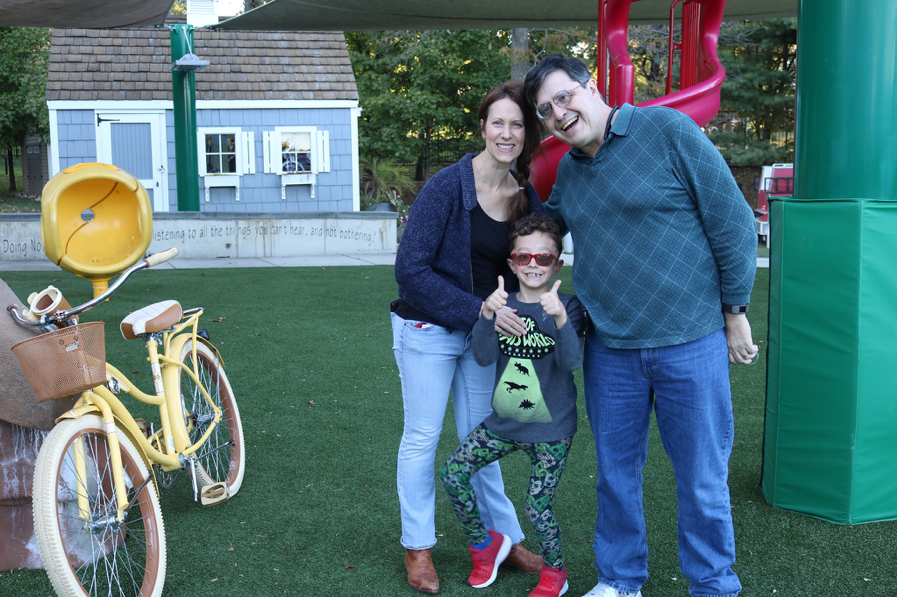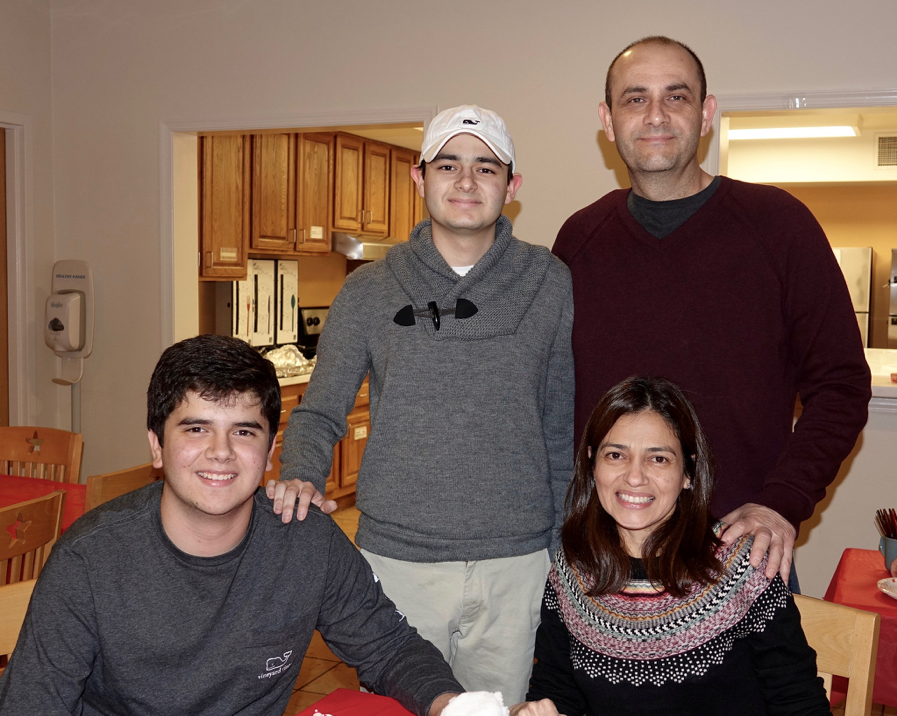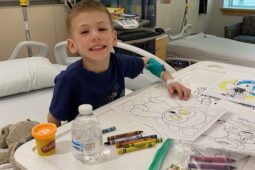Five Things Families Affected by Rare Diseases Wish Everyone Knew

Did you know about one in ten Americans – an estimated 25-30 million Americans – live with one of 7,000 rare diseases? Here are five crucial but simple things Inn families affected by rare diseases want you to know:
1. Don’t minimize a person’s illness by judging whether he or she “looks sick” or suggesting that a child may “grow out of it.” Many children or adults with rare or yet-undiagnosed diseases don’t obviously look sick, and their disease may affect them differently during their lives. One young adult Inn resident with sickle cell anemia says it’s frustrating for him to hear, “But you don’t look sick!” and to be misunderstood by teachers and others who judge his health by his looks. “They don’t understand my disease or why I sometimes cannot do my schoolwork on time. They still expect me to meet the same deadlines because I don’t look sick.”
For the mother of one Inn resident, hearing well-meaning comments that her daughter might grow out of her health issues is the opposite of helpful. “Ana has a genetic deletion that causes her issues, and while we hope someday to have a cure, it’s probably not in the big picture. Maintenance, scans, surgery and medications are her most likely route for life.”
2. Dealing with a rare disease is frightening, burdensome and isolating. Online communities offer families vital support. Rare diseases are often so uncommon that a family’s doctors may have never seen a patient with the disease, and may be unable to provide treatment options or support. Often there is very little information available online or in medical journals, and the information may be difficult to understand for people without medical degrees. Therefore, the burden of understanding the disease, finding resources and help falls on the family.
“I started a page to help families find resources, etc., that I had to learn as I was challenged with my son’s condition,” an Inn resident’s mom and founder of Chromosome Abnormality Learning Moms, or C.A.L.M., says. Today, she also uses the Facebook page to fundraise and keep others updated on her son’s progress.
Online support groups for specific illnesses offer real, human connections and advice, and are often the only place where rare disease sufferers feel understood and supported. Support groups provide families with information on symptom management, emotional support, clinical trials, dietary advice, potential treatments, what doctors to see and much more.
“My kids weren’t diagnosed until a year ago. I got no help from our HMO after our diagnosis. It’s so rare – fewer than 20 diagnosed worldwide – that they had no info for us. What helped was the Facebook support group! So much information. That’s how I heard of NIH and how to contact the specialists!” says a mom of two Inn residents with a rare genetic disorder.
To learn more about rare diseases and some of the organizations dedicated to helping people with rare diseases, visit GARD, the Genetic and Rare Diseases Information Center at the NIH.
3. Listen and offer words of kindness, encouragement or praise.
It’s hard to find the right thing to say to a child faced with a tough diagnosis. Simply listen and try to understand what they’re going through. Often, the most helpful thing to offer are heartfelt words of praise, support and encouragement.
“Courage and bravery is continuing on this path even when you want to give up. I’m not sure everyone feels the same, but I know my daughter loves it when people say she is brave. And she tells people the same,” says one Inn mom of a daughter with a rare illness.
Another mom of an Inn resident with a rare disease advises: “What has helped us the most is thoughts and prayers from so many kind people. It’s helpful when people tell you they care or are praying for you. They may not understand everything, and that’s OK to say, but just hearing an encouraging word is helpful.”
4. Give children with a rare disease the chance to be understood, educate others and make a difference.
Children and parents who share their story with others feel understood and appreciated for who they are, and gives them the chance to raise awareness of their illness, or raise funds for their cause. A child or family might appreciate an offer to speak to others in a classroom or other group setting like a sports team or activity group — just be sure to ask the family first before scheduling anything! “What has helped is getting my son involved in his school by educating them about the Inn and raising funds. It’s made him proud,” advises the mom of an Inn resident with two highly rare health conditions.
5. Offer to help with the little things.
Families of children with a rare illness deal not just with the emotional stress of caring for a sick child but also with the financial stress of costly medical bills combined with lost income due to leaving a job to care for a seriously ill child. Families appreciate any relief an individual or organization can offer.

“Having a place to stay, food, religious support and the unity between guests at The Inn makes your problems seem minor and makes you feel like part of a family,” says an Inn mom about The Children’s Inn. As an individual, consider offering the family help with the little things, like cooking, grocery shopping or helping with transportation. These small favors can help relieve the burden of illness on the family and will go miles in helping them feel supported.
Other articles you may be interested in:




